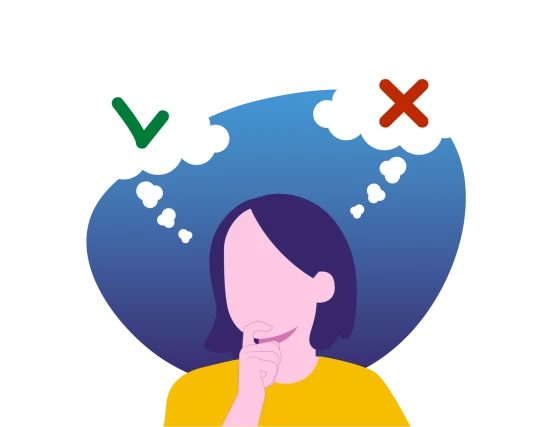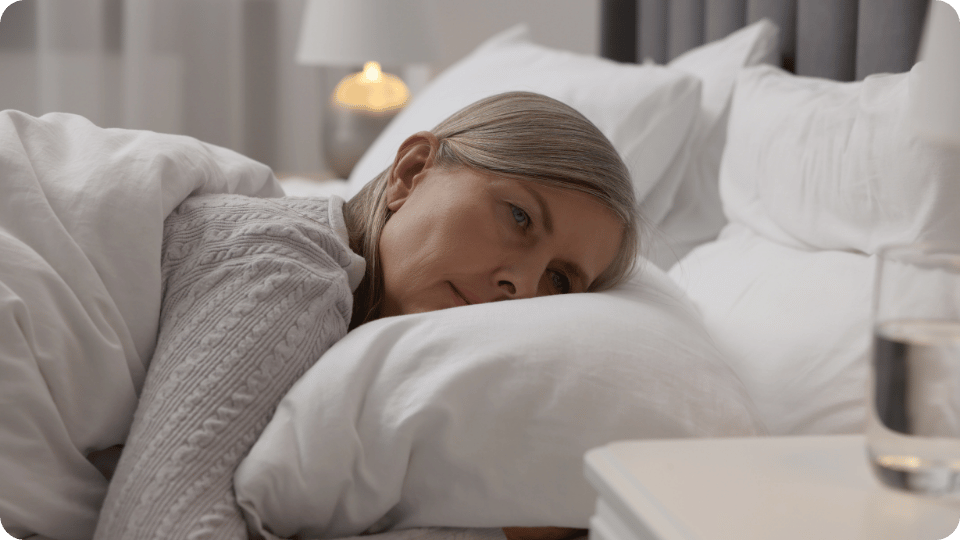Sleep facts and myths: what’s true and what’s not
Facts and myths about sleep are often mixed up. There is a lot of information out there. Some people believe fixed routines are important while others believe that sleep works differently for everyone. So how do you know what is true and what is not
In this blog we take a closer look at the most common sleep facts and myths. This will give you a better understanding of what does and does not help you get a good night's rest.

1. Fact or myth: you always need 8 hours of sleep
This is a myth. Eight hours of sleep is often seen as the golden rule but the ideal sleep duration varies from person to person. Some people feel fine with six hours while others do not feel rested until they get nine. Your age and lifestyle play an important role.
How much sleep do you need?
The amount of sleep you need depends on several factors. On average adults need between 7 and 9 hours of sleep per night to function well. Teenagers and children usually need more sleep while older people often need less.
Sleep quality also matters. Eight hours may sound ideal but if you wake up frequently or toss and turn a lot you will not feel truly rested. If you are physically active during the day or do heavy work you may need more sleep. Always listen to your body instead of focusing on a fixed number of hours.
2. Fact or myth: you can catch up on sleep during the weekend
This is also a myth. It may seem like a smart solution staying up late during the week and sleeping in on the weekend to make up for lost sleep. Unfortunately it does not work that way.
Consequences of sleep deprivation
Sleep deprivation has more long-term effects than you might think. Too little sleep affects your concentration reaction time and mood and can even weaken your immune system. Chronic sleep deprivation also increases the risk of cardiovascular disease weight gain and hormonal imbalances.
Sleeping in on the weekend might make you feel better for a moment but it also disrupts your biological clock. Your body gets used to an irregular rhythm which makes it harder to fall asleep on Sunday night. That means starting your Monday tired and stuck in a cycle.
3. Fact or myth: snoring means you are in deep sleep
That snoring means you are in deep sleep is a myth. Snoring is often seen as a sign of deep sleep but it can actually be a sign of disturbed breathing during lighter sleep.
Snoring and sleep quality
Snoring can negatively affect your sleep quality. People who snore often may wake up more frequently during the night which prevents deep sleep and causes daytime fatigue. Snoring can also be a sign of sleep apnea a condition where your breathing temporarily stops and your sleep is interrupted several times a night.
Of course snoring does not always mean you sleep poorly. But if you often feel tired during the day or wake up with a dry mouth or headache it could be a problem. Sleeping in a better position losing weight if needed or avoiding alcohol before bed can help reduce snoring and improve your sleep. If in doubt always consult a specialist.
4. Fact or myth: blue light ruins your sleep quality
This is a fact. The blue light from screens such as phones tablets and laptops can negatively affect your sleep quality.
Screen use before bed
Scrolling in bed or watching a show at night may feel relaxing but it can make it harder to fall asleep. Blue light sends a signal to your brain that it is not bedtime yet making it harder to feel sleepy. As a result you may fall asleep later and get less deep sleep.

5. Fact or myth drinking coffee in the evening does not affect your sleep
Although some people claim they sleep just fine after an evening cup of coffee this is a myth. Caffeine definitely affects your sleep
Effect of caffeine on sleep
The impact of caffeine on your sleep is greater than many people realize. Caffeine remains active in your body for about 5 to 6 hours. That means a cup of coffee in the late afternoon can make it harder to fall asleep at night. It can also disrupt your deep sleep leaving you feeling less rested and more tired during the day.
Not everyone reacts to caffeine in the same way. If you notice that you have trouble falling asleep or your sleep feels restless it might help to avoid coffee or other caffeinated drinks after the afternoon. Still want something warm in the evening Choose decaf coffee or a nice herbal tea.
6. Fact or myth a consistent sleep schedule is more important than sleep duration
This is a fact. While the amount of sleep you get is certainly important your sleep schedule plays an equally big role in sleep quality.
How your sleep cycle works
Your sleep consists of several stages that together form a full sleep cycle. One complete cycle lasts about 90 minutes and includes light sleep deep sleep and REM sleep the stage when you dream. You go through these stages multiple times each night.
If you follow a consistent sleep schedule going to bed and waking up at the same time each day your body can complete these cycles more effectively. Your biological clock syncs with this natural rhythm which helps you sleep more deeply and wake up feeling more refreshed even if you sleep a little less sometimes.
Tips to sleep better
Now that you know which sleep beliefs are true and which are myths here are some simple tips to help improve your sleep quality and wake up more refreshed
Listen to your body not everyone needs exactly eight hours of sleep Pay attention to how you feel during the day and adjust your sleep time to what works best for you
Keep a consistent sleep schedule going to bed and waking up at the same time each day helps your body develop a healthy rhythm and prevents the need to catch up on sleep during weekends
Avoid screens before bed blue light from phones and laptops disrupts melatonin production Try to avoid screens for an hour before sleeping or use night mode
Limit caffeine in the afternoon and evening caffeine can stay active for up to six hours Choose herbal tea or decaf coffee instead to improve your sleep
Pay attention to snoring and breathing snoring can reduce sleep quality especially if you feel tired during the day Try changing your sleep position or avoid alcohol in the evening if you snore
Try DroomSap

- For a good night's sleep
- Combination of 7 herbs, honey, and doxylamine
- Calming for body and mind
How can we help you?

Sign up for the newsletter

